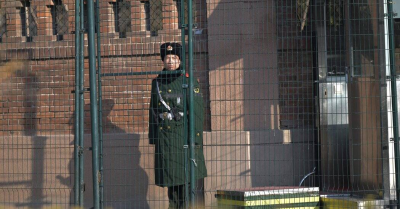纽约时报中文网 - 英文原版-英China Says It Detained a Foreign Consultant for Spying for Britain
January 9, 2024 3 min 594 words
这则报道揭示了中英之间的谍报纷争,引人深思。中国指控一名外籍顾问为英国从事间谍活动,背后可能涉及复杂的国际政治博弈。报道中的信息可能只是冰山一角,我们需要更多细节来全面评估事件真相。在当前紧张的国际关系下,此类指控容易成为政治工具,强调了信息透明和独立调查的重要性。媒体应持客观立场,深入挖掘事件背后的动机和真相,以促进全球理解与合作。这一事件也提醒各国关系的复杂性,强调了互相沟通与理解的紧迫性。
China’s top intelligence agency said Monday that it had detained the head of an overseas consulting agency for working as a spy for the British government to collect Chinese state secrets.
The Chinese Ministry of State Security said it caught a consultant with the surname Huang, who collected China-related intelligence and found personnel on behalf of MI6, the British intelligence agency. The agency recruited and trained Huang — who is from an unspecified “third country” — in the United Kingdom and other places, the ministry said in a post on its official WeChat account. The British government equipped the individual with “special spy equipment,” the ministry wrote.
“After meticulous investigation, the national security agency promptly discovered criminal evidence that Huang was engaged in espionage activities, and took criminal coercive measures against Huang in accordance with the law,” the state security ministry wrote.
The post said that Huang provided the British government with 14 state secrets, and three pieces of intelligence. The statement did not specify the company that Huang worked for or the person’s nationality.
While the agency has made allegations against other individuals who it said had been caught spying for the U.S. government in previous WeChat posts, this is the first time that Beijing has accused the British of espionage in the public forum.
A representative for the Foreign Office in London declined to comment, citing a longstanding practice on intelligence matters, and the British Embassy in Beijing did not respond to requests for comment.
The statement came four months after the revelation that a researcher who worked in the British Parliament had been arrested on suspicion of spying for Beijing. The researcher, who has denied that he is a spy, worked with lawmakers on policy matters about China. China’s foreign ministry has repeatedly condemned the assertion that the researcher was part of a growing Chinese spy ring in Britain as “entirely groundless.”
The announcement on Monday by the state security ministry was also the latest sign of China targeting consulting and advisory firms with foreign ties. Last year, there were reports of raids, detainments and arrests at prominent consulting firms including American companies such as the Mintz Group and Bain & Company.
The crackdown seemed to focus on companies that provide hard-to-obtain information that foreign investors use to assess potential business risks in China before an investment. Such information is especially valuable in China, where reliable information is hard to come by.
Changes to China’s counterespionage laws have also broadened the already sweeping definition of what constitutes spying. Foreign businesses expressed concern that they could be targeted for espionage over normal business practices such as gathering information on competitors, markets and industry.
Steve Tsang, director of the SOAS China Institute in London, said the fact that this accused spy came from an industry that China has already deemed problematic makes the accusations of serious espionage less convincing, because people working in such firms are convenient targets.
Whether this person actually has anything to do with the British spy agency will be almost impossible to confirm since MI6 is unlikely to say anything and the Chinese are unlikely to provide additional evidence to bolster its case, he said.
“If the Chinese really have a case, they really have to come up with a bit more either in public or in private with the Brits,” Mr. Tsang said. “If not, it would not be taken too seriously.”
Claire Fu and Mark Landler contributed reporting.

